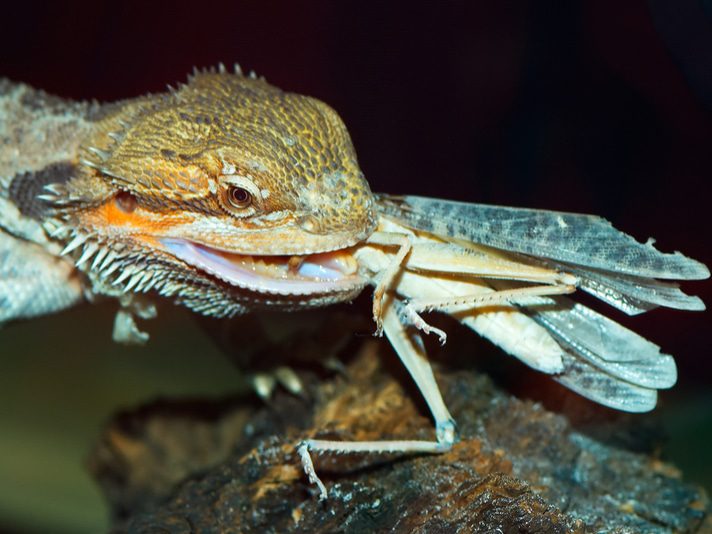My bearded dragon recently stopped eating and I was wondering what would cause this?
Q: I have a bearded dragon that is approximately 1 year old. I'm not sure exactly how old he was when we got him. He is about a foot long from nose to tip of tail. He is not eating his greens or worms anymore. It's been about a week. He stopped eating the greens first and then the worms. We just moved his cage to a different part of the room. Could that be the problem? Do they ever just quit eating for a while when there is not a major problem? He has both of the required lights and the heating pad for at night.
A: Because he stopped eating when you recently moved him to a different location, I wonder if his conditions changed, perhaps, resulting in a change in temperature? Beardies are very sensitive to environmental changes. I am not sure if you are keeping him warm enough. Do you have thermometers in his cage? During the daytime, he should have a hot basking spot of between 95 and 110 degrees Fahrenheit, and one side of the enclosure should be cooler, around 80-85 degrees. If you don’t have thermometers (accurate ones) inside your habitat, you must purchase some in order to properly care for your herp. Very inexpensive digital hygrometers and thermometers are available from places like Radio Shack, for example. By “required lights” do you mean a basking bulb and a full-spectrum fluorescent that puts out ultraviolet light?
It is very difficult for me to help you unless you provide me with your pet’s temperature ranges, lighting, diet and habitat description. Please remember to include this information when you are e-mailing me questions so that I can best advise you.
Now, because beardies are so sensitive to change, the move may have triggered a change in his activity. In the wild, beardies breed during the rainy season, and may be forced to go into a dormant period during the hot, dry summer, and also during a winter cold spell. In captivity, dormancy may be triggered by factors imperceptible to us. Beardies may go off feed, and try to burrow and hide when dormancy is triggered. This usually occurs in the fall or winter, or when a beardie is moved to a new location, as yours has recently been.
You might want to consult with your herp vet, but if he is healthy, you can allow him to go through a short dormant period. A beardie going through a dormant period will refuse all food and water and try to burrow or hide. Turn off the basking lights and drop the cage temperature to between 60 and 72 degrees for three to six weeks. Remove all food from the cage during this time.
If your beardie begins showing signs of coming out of the dormant period, bring the temperature back up to normal, and provide food and water once more. If your lizard doesn’t begin to come out of the dormant period on his own, you can begin slowly increasing the temperature, which should rouse him. Do not allow him to stay dormant for more than six weeks. A healthy bearded dragon should suffer no ill effects from going through a dormant period. An ill or unthrifty beardie should not be allowed to go through a period of dormancy. If you have any questions about dormancy, contact your herp vet for help.



